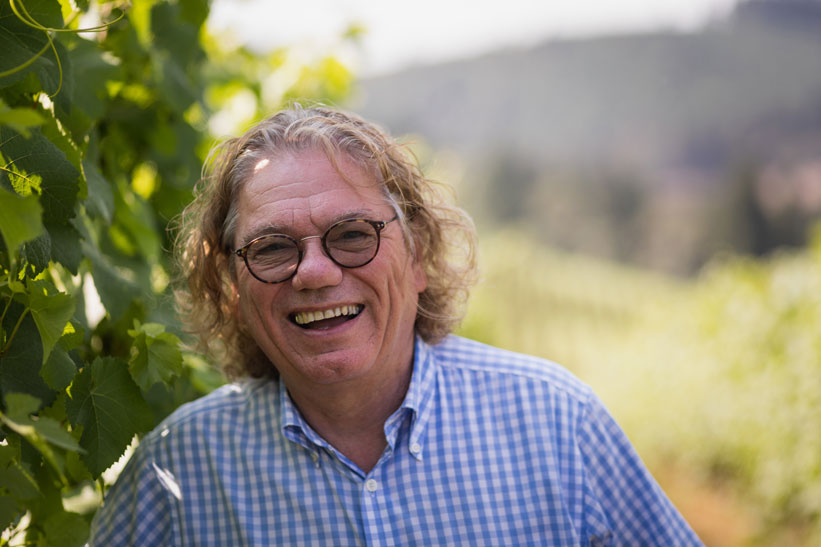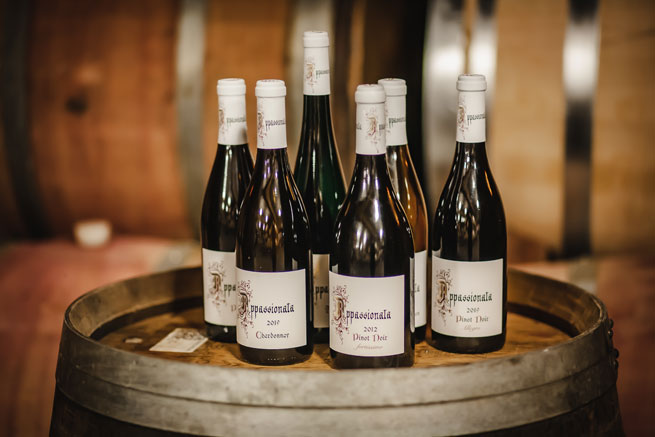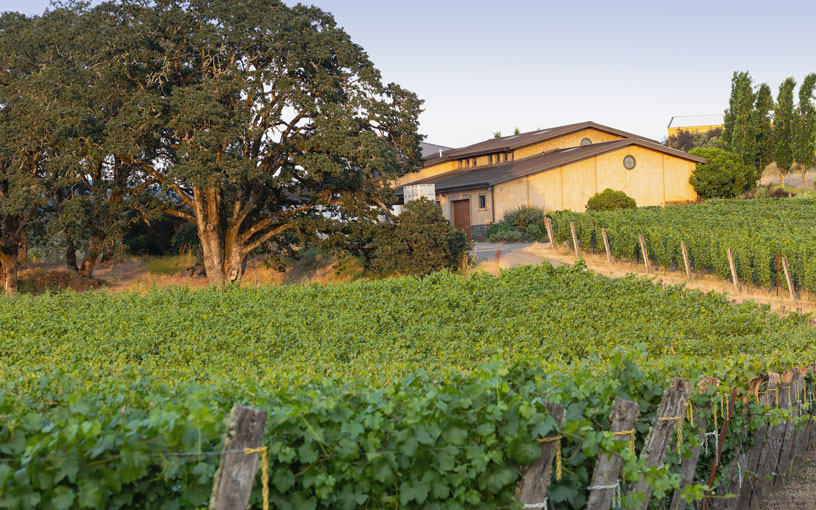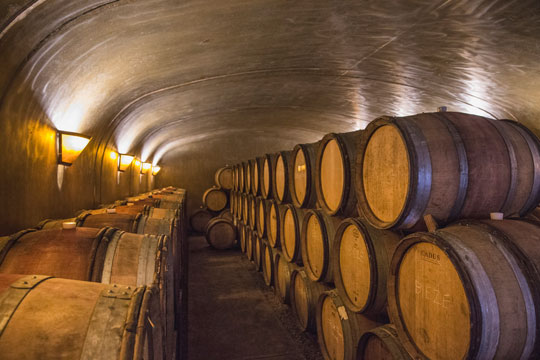An Interview with Ernst Loosen, Owner, Appassionata Estate

EDITORS’ NOTE Ernst “Erni” Loosen is an internationally renowned winemaker and owner of the 200-year-old Dr. Loosen winery in Germany’s Mosel River valley. Driven by an insatiable curiosity and a belief that great wine should be true to its roots, vividly expressing its grape variety and terroir, Loosen has established acclaimed winemaking ventures around the globe. Raised in a traditional German winemaking family, he initially left home to study archaeology, but when his father became seriously ill in 1987, he returned home to carry on the family legacy with the condition that he could manage the estate on his own terms. Over the course of more than 30 years, he has propelled Dr. Loosen into the upper echelons of German wines, and has helped raise the international reputation of the Mosel region, and Riesling in general. In 1996, Loosen pursued his lifelong passion for Pinot Noir when he acquired the Villa Wolf winery in Germany’s Pfalz region. Three years later he launched his first U.S. Riesling venture, Eroica, in collaboration with Washington’s Chateau Ste. Michelle. After many visits to Oregon’s Willamette Valley, he launched a high-end Pinot Noir called Appassionata in collaboration with J. Christopher
Wines in 2005. Several vintages later, he realized his vision of launching a European-style winery and vineyard in Oregon, purchasing a 40-acre property in the Chehalem Mountains and establishing Appassionata Estate (appassionataestate.com).
Will you highlight the history of Appassionata Estate and how you define its mission?
My first trip to Oregon was over three decades ago and I was really impressed by the quality of the wines being produced here. Naturally, I got the desire to start making my own wine here, but I wanted to do it differently than everyone else. I wanted to create wines that would age well for decades in the cellar and not release them until they are just starting to develop maturity. Appassionata began in 2005 as a small, collaborative project with J. Christopher Wines, with one very limited, barrel-selection Pinot Noir. A
few vintages later, I bought a beautiful 40-acre property in the Chehalem Mountains and began planting the estate vineyard and building the winery. I love drinking well-matured Pinot Noir and, for me, great wines show their full potential only with age. It really opens your eyes to the grape variety and gives you a more profound wine experience. So, we only release the Appassionata wines when we feel that we have reached the ideal level of maturity for each cuvée. Sometimes that means the wines are in our cellar
for more than 10 years before we release them. When released, they are ready to drink right away but still have many vital years ahead of them.

How do you focus your efforts leading Appassionata Estate?
I always say that “A great wine begins in your head,” so it’s my job to make sure that the Appassionata winemaking team understands the vision I have in my head. Fortunately, I have an exceptional team in Oregon that I can trust completely to uphold our standards and philosophy. I know that every decision they make in the vineyard and cellar is exactly what I would have done. I travel to Oregon several times a year to be involved in the key stages of the winemaking process. Blending sessions are especially important to me, as they are where we refine the balance, structure, and longevity of these wines. I also take the time to evaluate bottles that may be ready for release. These visits allow me to work closely with my team, exchange ideas, and stay closely connected to the evolution of the estate. While the day-to-day
operations are in the hands of my incredibly skilled team, my time in Oregon is essential to guiding my long-term vision for Appassionata.
Will you provide an overview of Appassionata Estate’s wines?
The Appassionata suite of wines includes three Pinot Noirs, a Riesling and a Chardonnay. Each is made to capture the complexity, structure, and intensity we’re seeking, but with a particular focus on ageability. These wines offer a fascinating journey through the stages of development as the wines mature, and that’s the whole point of Appassionata: to show the greatness that Willamette Valley wines can achieve
with the benefit of age. The Allegro Pinot Noir is a barrel selection that shows a youthful liveliness and beautifully displays the initial stages of bottle maturation. It is released a minimum of three years after the
vintage. The Andante Pinot Noir is selected to emphasize elegance and refinement. It needs a bit more time before it starts to enter maturity, so we hold it for at least five years before it is released. Selected for ultimate expressivity and longevity, the Fortissimo Pinot Noir is aged for at least 10 years in the bottle before we release it. This is our Grand Cru bottling and is the peak of what we are seeking in Willamette
Valley Pinot Noir – a wine that has both power and finesse, and can stand among the classic wines of the world for generations to come. Our Riesling GG was inspired by the winemaking techniques of my great-grandfather. It’s a savory, harmonious dry wine made in the same way as the Grosses Gewächs Réserve Rieslings that I make at Dr. Loosen in the Mosel. The wine is fermented in a large, German oak cask where it rests on the full lees for two years. Then we hold it in bottle for up to five years before release. It’s
a long process, but making age-worthy wines like these require extreme patience. Appassionata Chardonnay is, for us, the summit of this classic Burgundian variety in the Willamette Valley. It has absolutely gorgeous aromatic intensity and a lively structure. This wine is made in 500-liter oak barrels and rests on the full lees for two years before bottling, followed by another year in bottle before release.

What do you see as Appassionata Estate’s responsibility to sustainability and how ingrained is this commitment to Appassionata Estate’s culture and values?
As a winegrower, I believe that we have a responsibility to care for the land that sustains us. At Appassionata Estate, sustainability is part of every decision we make, from the vineyards to the cellar. From the very beginning, this commitment guided our choice of vineyard sites, the design of our winery, and the materials used to build it, ensuring that we work with nature rather than against it. In the vineyards, we focus on maintaining healthy soils and balanced vines through thoughtful farming
practices that promote biodiversity and longterm vitality. In the cellar, we take the same careful approach, minimizing intervention and energy use, while allowing the wine to develop naturally. For me, sustainability is not just about preserving the land for the next generation; it’s about ensuring that every bottle we produce is a true reflection of where each wine comes from and when it was made.

Did you always know that you had a passion for the wine industry and what has made the industry so special for you?
Wine has been a part of my life for as long as I can remember. Growing up in the Mosel region of Germany, in a family with over 200 years of winemaking history, there was little question that I would be involved in the family winery someday. But passion is something different. I actually studied archeology
at university before taking over the Dr. Loosen estate from my father. At that time, the medieval castle ruins in our area were far more interesting to me than the vines. I truly discovered my deep love for winemaking when I took over the estate in the late 1980s and had the opportunity to travel, taste, and learn from great winemakers around the world. That’s what makes the wine industry so special: there is always something new to explore, new challenges to tackle, and new ways to refine your craft. With Appassionata Estate, I’ve found a whole new dimension to that passion, working with Oregon’s exceptional terroir, and building something with a long future ahead. The pursuit of making wines that can stand the test of time – this is what drives me.
